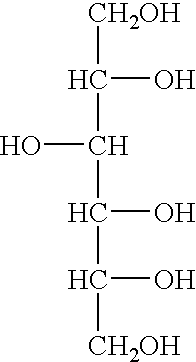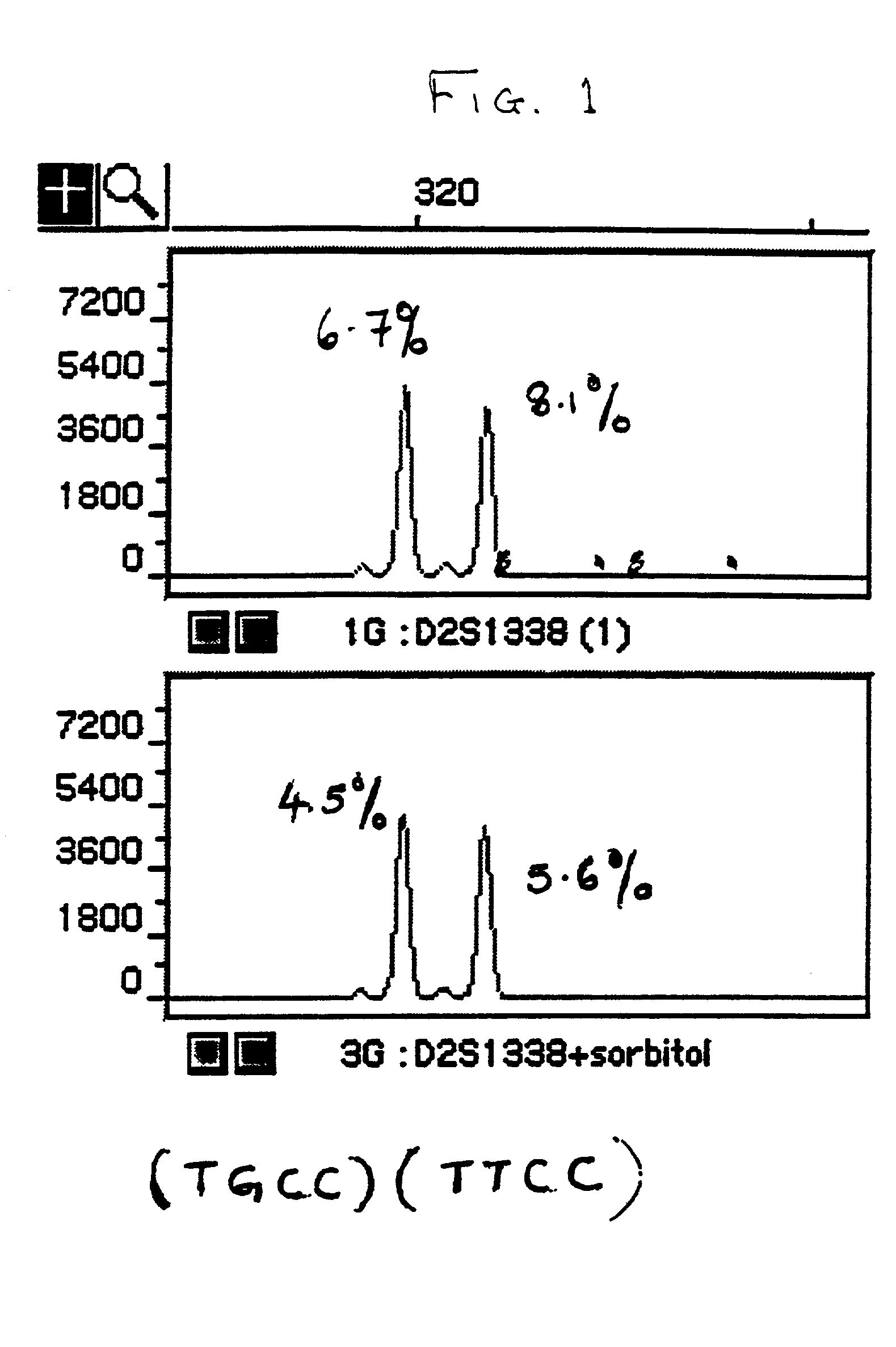Methods for the reduction of stutter in microsatellite amplification
a microsatellite and amplification technology, applied in the field of methods for reducing stutter in microsatellite amplification, can solve the problems of complicated analysis of closely spaced microsatellite alleles, and the multiple signal pattern observed for each allele is especially difficult to interpr
- Summary
- Abstract
- Description
- Claims
- Application Information
AI Technical Summary
Benefits of technology
Problems solved by technology
Method used
Image
Examples
example 1
[0121] PCR reactions were used to amplify the DNA tetranucleotide microsatellite, D2S1338 ((TGCC)(TTCC)) in the presence or absence of sorbitol (FIG. 1). The 50 ul reactions contained 20 mM Tris, 20 mM ammonium sulfate, 4.5 mM magnesium sulfate 1 mM each or dATP, dGTP, dCTP and dTTP, 12 pmoles oligonucleotide primers, 2 ng human genomic DNA template, 5U AmpliTaq Gold.RTM. DNA polymerase in water. In reactions in which sorbitol was added, the reactions contained 2.0 M sorbitol. The reaction conditions were as follows: 95.degree. C. for 11 minutes, followed by 28 cycles of 94.degree. C. for 30 seconds, 55.degree. C. for 4 minutes and 69.degree. C. for 6 minutes, followed by incubation at 60.degree. C. for 45 minutes. Following PCR, samples were mixed with ROX fluorescent size marker (Applied Biosystems). Samples were denatured and separated using a protocol for capillary electrophoresis prepared for an ABI 310 Automated Genetic Analyzer according to the manufacturer's specifications. ...
PUM
| Property | Measurement | Unit |
|---|---|---|
| temperature | aaaaa | aaaaa |
| temperature | aaaaa | aaaaa |
| temperature | aaaaa | aaaaa |
Abstract
Description
Claims
Application Information
 Login to View More
Login to View More - R&D
- Intellectual Property
- Life Sciences
- Materials
- Tech Scout
- Unparalleled Data Quality
- Higher Quality Content
- 60% Fewer Hallucinations
Browse by: Latest US Patents, China's latest patents, Technical Efficacy Thesaurus, Application Domain, Technology Topic, Popular Technical Reports.
© 2025 PatSnap. All rights reserved.Legal|Privacy policy|Modern Slavery Act Transparency Statement|Sitemap|About US| Contact US: help@patsnap.com


